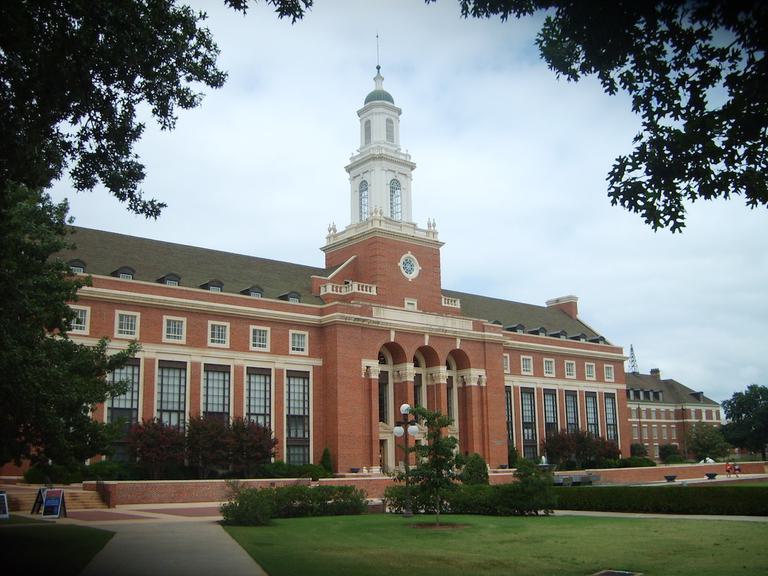
Higher Education
Mike Brake | December 12, 2019
OSU lawsuit points up bias in higher education
Mike Brake
A lawsuit filed on November 18 by an Oklahoma State University professor claiming she was denied a promotion because of her conservative views illustrates once again the effects of a pervasive and systematic political bias in higher education that extends back decades, according to a professor who has studied the problem.
Associate professor Jon Shields of Claremont McKenna University is the co-author of Passing on the Right: Conservative Professors in the Progressive University.
“We interviewed 153 conservative and libertarian professors,” Shields said. He said while he and his co-author Joshua Dunn did find examples of apparent political bias like that alleged in the OSU lawsuit, the larger issue that emerged was a systematic bias that worked to discourage non-liberals from entering academia in the first place.
OSU associate professor Whitney Bailey of the university’s College of Human Sciences is suing five campus administrators, accusing them of political bias in denying her a deserved promotion to full professor and in curtailing her duties and salary after she returned from a year’s leave during which she served in a high position in the federal Department of Health and Human Services.
Stan Ward, the Norman attorney who is representing Bailey, said Bailey had glowing recommendations for the promotion. He said not only was she denied the higher rank after she returned from service in the Trump administration, but her class schedule was also altered, costing her some $20,000 in income.
Bailey was twice honored by the OSU Panhellenic and Interfraternity Council as Outstanding Faculty Member. Yet, her lawsuit alleges, she was passed over simply because of her political affiliation and views. (Interestingly, according to the lawsuit, after Trump’s victory in 2016 “OSU's administration offered counseling assistance to its employees who were having difficulty dealing with Trump's election.”)
Allegations of political bias on campuses against Republican and conservative teachers are hardly new. The Higher Education Research Institute, like many other organizations, has consistently found that Republicans only make up five to 19 percent of college and university faculties, with numbers as low as one percent or even zero in some of the academic disciplines most heavily dominated by the left.
Nor is that imbalance completely accidental. A survey by the Association for Psychological Science revealed that a significant number of respondents admitted that they would actively discriminate against non-liberals in hiring.
Shields said his findings did isolate some cases that resulted in lawsuits and other actions to correct denials of tenure or promotion for qualified non-liberals, but he suggested that the very fear of such suits may have caused more department heads and university administrators to refrain from actions like those alleged by Bailey.
“They are more afraid of being sued,” he suggested. Instead, campus liberals tend to steer undergraduates who agree with them into pursuing advanced degrees and eventual teaching careers while often discouraging conservatives.
“For the most part, you usually don’t find discrimination that late in the process,” he said in reference to the Bailey case. “The most serious problem is earlier.”
With the exception of economics, which has an established conservative tradition, most social science and humanities fields are so heavily dominated by the left that non-liberals do not feel at home there, Shields said.
“A young conservative thinking about a Ph.D. is already likely to be headed down a different path. What complicates things is that many on the left in higher ed simply cannot imagine that they have any political biases at all.”
Shields said he is not optimistic about achieving a better ideological balance in academia.
“It is getting worse,” he said. “The World War II generation was more balanced but as they retired they were replaced by even more homogeneously liberal faculties.” He said he sees even fewer young conservatives angling for academic careers today.
Ironically, the rarity of the conservative academic can even work to further isolate or even punish them, Shields said, noting Bailey’s case as an example.
“Because of their rarity there are more opportunities to go to Washington as part of a Republican administration, but when they return to academia they can pay a price because they are now labeled as part of the activist right,” he said. Liberals drafted for government service face no such stigma.
Mike Brake
Independent Journalist
Mike Brake is a journalist and writer who recently authored a centennial history of Putnam City Schools. A former reporter at The Oklahoman (his coverage of the moon landing earned a front-page byline on July 21, 1969), he served as chief writer for Gov. Frank Keating and for Lt. Gov. and Congresswoman Mary Fallin. He has also served as an adjunct instructor at OSU-OKC, and currently serves as public information officer for Oklahoma County Commissioner Brian Maughan.